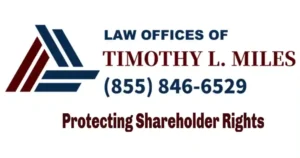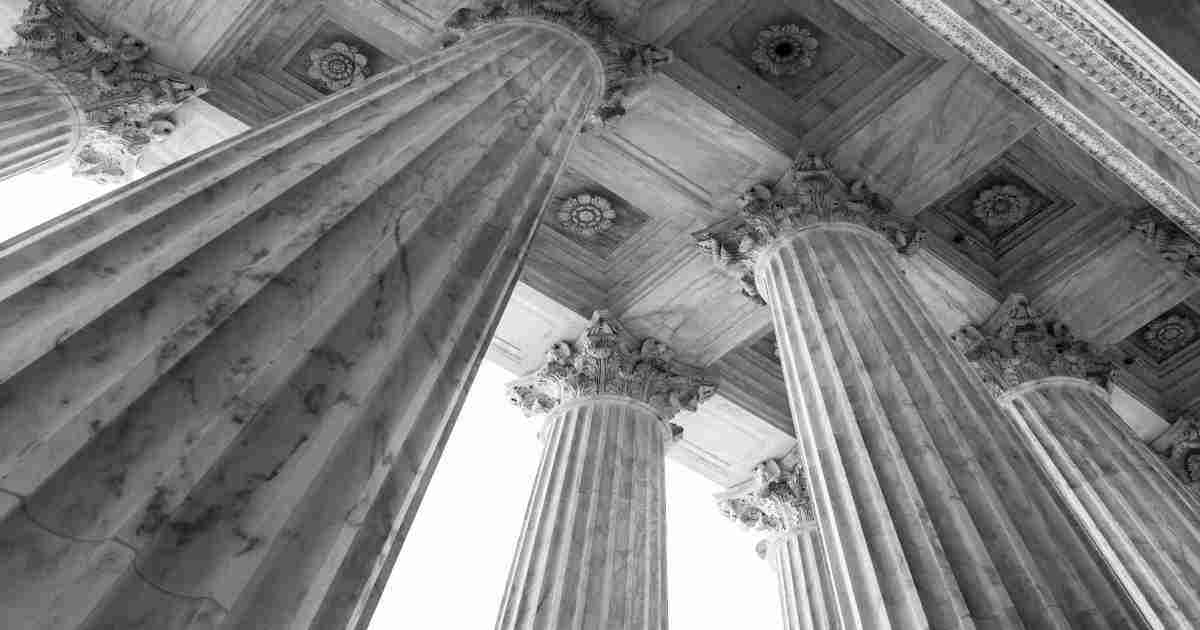Introduction to the DoubleVerify Class Action Lawsuit
If you suffered substantial losses and wish to serve as lead plaintiff of the DoubleVerify class action lawsuit, or just have general questions about you rights as a shareholder, please contact attorney Timothy L. Miles of the Law Offices of Timothy L. Miles, at no cost, by calling 855/846-6529 or via e-mail at tmiles@timmileslaw.com.
Lead plaintiff motions for the DoubleVerify class action lawsuit must be filed with the court no later than July 21, 2025.
Overview of DoubleVerify and Its Operations
DoubleVerify is a prominent company specializing in digital advertising verification. It offers a suite of services that ensure ads are viewable by real people in the intended environments, thereby maximizing the effectiveness of digital marketing campaigns. Their operations encompass a variety of tools designed to combat issues such as ad fraud and brand safety concerns, making them a critical player in the digital advertising ecosystem.

Founded in 2008, DoubleVerify has established itself as an industry leader by leveraging advanced technology and data analytics. Its services are utilized by some of the world’s leading brands and advertising agencies, who rely on DoubleVerify to maintain the integrity and performance of their digital ad investments.
The company’s verification solutions are integrated across multiple platforms, providing comprehensive coverage that is essential in today’s complex digital landscape.
However, despite its strong market position, DoubleVerify has not been immune to controversy. Questions have been raised about certain practices and the transparency of their operations.
This scrutiny has led to the current DoubleVerify class action lawsuit, which alleges that DoubleVerify may have engaged in practices that are not in compliance with industry standards or legal requirements.
Allegations in the DoubleVerify Class Action Lawsuit
DoubleVerify provides media effectiveness platforms.
- The DoubleVerify lawsuit alleges that defendants throughout the Class Period made false and/or misleading statements and/or failed to disclose that:
- (DoubleVerify’s customers were shifting their ad spending from open exchanges to closed platforms, where DoubleVerify’s technological capabilities were limited and competed directly with native tools provided by platforms like Meta Platforms and Amazon;
- DoubleVerify’s ability to monetize on its Activation Services was limited because the development of its technology for closed platforms was significantly more expensive and time-consuming than disclosed to investors;
- DoubleVerify’s Activation Services in connection with certain closed platforms would take several years to monetize; (iv) DoubleVerify’s competitors were better positioned to incorporate AI into their offerings on closed platforms, which impaired DoubleVerify’s ability to compete effectively and adversely impacted DoubleVerify’s profits;
- DoubleVerify systematically overbilled its customers for ad impressions served to declared bots operating out of known data center server farms; and
- DoubleVerify’s risk disclosures were materially false and misleading because they characterized adverse facts that had already materialized as mere possibilities.
The DoubleVerify class action lawsuit further alleges that on February 28, 2024, DoubleVerify issued lower revenue growth expectations for the first quarter of 2024 due to “a slow start by brand advertisers and a slow ramp by recently signed” customers. On this news, the price of DoubleVerify stock fell more than 21%, according to the complaint.
Then, on May 7, 2024, DoubleVerify cut its full-year 2024 revenue outlook due to customers that were pulling back on their ad spending. On this news, the price of DoubleVerify stock fell nearly 39%, according to the DoubleVerify lawsuit.
The DoubleVerify class action lawsuit further alleges that on February 27, 2025, DoubleVerify reported lower-than-expected fourth quarter 2024 sales and earnings due in part to reduced customer spending, and defendants further disclosed that the shift of ad dollars from open exchanges to closed platforms was negatively impacting DoubleVerify.
On this news, the price of DoubleVerify stock fell more than 36%, according to the DoubleVerify lawsuit.
The Lead Plaintiff Deadline in the DoubleVerify Class Action Lawsuit
Lead plaintiff motions for the DoubleVerify class action lawsuit must be filed with the court no later than July 21, 2025. When a securities class action is filed:
- The person who files the first complaint is required to publish a notice announcing the filing.
- Anyone who wants to be the lead plaintiff on behalf of the class must thereafter file a motion to be appointed as lead plaintiff(s) no later than 60 days after the notice was published.
The Benefits of Serving as a Lead Plaintiff in the Doubleverify Lawsuit
- Negotiating more competitive attorney fees and reducing litigation costs.
- Managing the litigation by overseeing the progress of the case and reviewing important filings.
- Participating in mediation and settlement discussions.
- Having a voice in decision-making processes regarding the settlement.
- No financial risk, as lead counsel covers all costs and expenses and are paid only if they secure a settlement or judgment recovery for the class
- Potentially enjoying long-term benefits from governance reform resulting from the litigation.
The Responsibilities the Lead Plaintiff Will Have in the Doubleverify Lawsuit
- Selecting, monitoring, and overseeing Lead Counsel.
- Reviewing and commenting on court filings on behalf of the class.
- Discussing litigation strategies with the Lead Counsel.
- Attending depositions (if necessary) and giving a deposition.
- Attending hearings (if necessary).
- Participating in mediation and the trial (if necessary).
- Provide input on any decision concerning the settlement of the securities class action.
The Eligibility Criteria for Lead Plaintiff Appointment in the Doubleverify Class Action Lawsuit
To be eligible for appointment as the lead plaintiff in the DoubleVerify class action lawsuit, an investor must meet the following criteria:
- Securities Acquisition: The investor must have purchased or acquired DoubleVerify Holdings, Inc. (NYSE: DV) securities between November 10, 2023 and February 27, 2025.
- Financial Losses: The investor must have suffered financial losses as a direct result of the alleged securities fraud perpetrated by Doubleverify and its executives.
- Typicality and Adequacy: The investor’s legal claims must be typical of those asserted on behalf of the class, and they must demonstrate their ability to adequately represent the interests of the entire class through experience, resources, and the absence of conflicts of interest.
It is crucial to note that both domestic and international investors who meet these criteria are eligible to seek appointment as the lead plaintiff in the class action lawsuit, as courts have consistently recognized the rights of non-U.S. investors in securities class actions.
The Legal Requirements for Prevailing in the Doubleverify Lawsuit
- Material Misrepresentation or Omission
- Scienter
- Connection to Securities Transaction
- Reliance
- Economic Loss
- Loss Causation
Implications of the DoubleVerify Class Action Lawsuit
The implications of the DoubleVerify class action lawsuit are substantial, affecting a wide range of stakeholders within the digital advertising ecosystem. For DoubleVerify, the lawsuit presents a significant challenge to its reputation and operations. If the allegations are substantiated, the company may face financial penalties, regulatory sanctions, and a loss of trust among its clients.

For advertisers and agencies, the DoubleVerify lawsuit raises important questions about the reliability of ad verification services. Companies that have relied on DoubleVerify may need to reassess their verification strategies and consider alternative solutions to ensure the integrity of their digital advertising efforts. This reassessment could lead to shifts in how digital marketing budgets are allocated and managed.
Moreover, the DoubleVerify lawsuit could have broader industry implications by prompting regulatory bodies to tighten oversight of digital advertising practices. Increased scrutiny on ad verification companies may lead to the development of more stringent standards and guidelines, ultimately fostering greater transparency and accountability in the industry.
Who is Affected by the Doubleverify Class Action Lawsuit?

Identifying whether you are part of the affected group is crucial for understanding your rights and potential benefits. TheDoubleVerify lawsuit may involve a specific time frame and set of circumstances that define the class of investors who can participate. Knowing these details will help you determine your eligibility and take appropriate action.
In addition to investors, the DoubleVerify class action lawsuit can also impact the company’s executives, board members, and other stakeholders. The outcome of the lawsuit could influence Doubleverify’s reputation, financial stability, and future operations, affecting all parties associated with the company. Staying informed about the lawsuit’s progress is essential for anyone connected to Doubleverify.
Potential Outcomes of the DoubleVerify Lawsuit
The potential outcomes of the DoubleVerify class action lawsuit are varied and dependent on the evidence presented and the court’s rulings. One possible outcome is a settlement between DoubleVerify and the plaintiffs, which could involve financial compensation to affected parties and commitments to change certain business practices.
If the DoubleVerify lawsuit proceeds to trial and the court finds DoubleVerify liable, the company could face significant financial penalties. These penalties might include fines, restitution to affected clients, and potentially even punitive damages. Additionally, the court may impose mandates requiring DoubleVerify to enhance its transparency and data handling procedures.
Another potential outcome is that the DoubleVerify class action lawsuit could lead to broader industry reforms. If the case highlights systemic issues within digital ad verification, it may prompt regulators to introduce new rules and guidelines aimed at protecting consumer privacy and ensuring the accuracy of ad reporting. Such reforms could have long-lasting effects on the digital advertising industry, fostering a more ethical and accountable environment.
Legal Experts’ Perspectives on the DoubleVerify Class Action
Legal experts have weighed in on the DoubleVerify class action lawsuit, offering insights into the complexities and potential ramifications of the case. Many experts agree that the lawsuit is a pivotal moment for the digital advertising industry, highlighting the need for greater transparency and accountability in ad verification practices.

Some legal analysts suggest that the case could serve as a precedent for future litigation involving ad verification companies. The outcome of the DoubleVerify class action lawsuit may influence how courts interpret and enforce legal standards related to data privacy and transparency, shaping the legal landscape for similar cases in the future.
Experts also emphasize the importance of the lawsuit in raising public awareness about the role of ad verification companies. By bringing these issues to light, the lawsuit could encourage more consumers and businesses to scrutinize the practices of their verification partners, ultimately leading to a more informed and vigilant marketplace.
What to Do if You’re Affected by the DoubleVerify Lawsuit
Gathering and Organizing Relevant Evidence
In a securities class action lawsuit just like the DoubleVerify class action lawsuit, evidence is the cornerstone of building a compelling case. For shareholders, gathering and organizing relevant evidence is a critical step in substantiating claims of corporate misconduct.
The evidence typically revolves around documents and communications that demonstrate the company’s misrepresentations or omissions, as well as the financial harm suffered by shareholders. Below are some steps you should take:
- Compile all financial statements, press releases, analyst reports, emails, and any internal documents that shed light on the alleged wrongdoing alleged in the DoubleVerify class action lawsuit.
- Meticulously document your investment history with the DoubleVerify, including dates of stock purchases and sales, quantities, and prices. This information is crucial for calculating damages and proving that the shareholder suffered financial losses as a result of the company’s actions.
- Maintaining detailed records not only strengthens the individual’s position in the lawsuit but also contributes to the overall strength of the DoubleVerify class action lawsuit, by providing a clear picture of the impact on shareholders.
- Organizing this evidence in a systematic manner is equally important. Shareholders can create a comprehensive file of all relevant documents, categorized by type and date, to facilitate easy retrieval and review by legal counsel.
This preparation not only aids in the efficient prosecution of the DoubleVerify class action lawsuit, but also demonstrates the shareholder’s commitment and readiness to actively participate in the litigation process.
By thoroughly gathering and organizing evidence, shareholders lay a solid foundation for holding corporations accountable and seeking redress for their financial injuries.
Staying Informed: Monitoring Case Developments
In the fast-paced environment of securities class action lawsuits, staying informed about case developments is crucial for shareholders. As the DoubleVerify class action lawsuit, moves forward, new information and events can significantly impact the strategy and potential outcomes.

DoubleVerify shareholders must actively monitor key milestones, such as court rulings, settlement negotiations, and any changes in the legal landscape. Keeping abreast of these developments ensures that shareholders are well-positioned to make timely and informed decisions.
Effective communication with legal counsel is essential for staying updated on case developments. Attorneys provide regular updates and analyses of the ongoing proceedings, helping shareholders understand the implications of each development.
This information is vital for assessing the potential risks and benefits of different courses of action, such as whether to accept a settlement offer or continue pursuing the DoubleVerify class action lawsuit.
By maintaining open lines of communication with their legal team, shareholders can remain engaged and proactive throughout the litigation process.
Shareholders can also benefit from following news sources and industry reports related to the DoubleVerify class action lawsuit and the defendant company. These sources can provide valuable insights into broader market trends, regulatory changes, and public perceptions that may influence the case. By staying informed, shareholders can better anticipate shifts in the legal and financial landscape, enabling them to adapt their strategies and protect their interests effectively.
In securities class actions, knowledge is power, and staying informed is a key component of successful participation.
Conclusion: The Future of DoubleVerify and Its Impact on the Industry
The DoubleVerify class action lawsuit represents a critical juncture for the company and the digital advertising industry as a whole. As the legal proceedings unfold, the outcomes will likely shape the future of ad verification practices, influencing how companies operate and interact with consumers and businesses.
Regardless of the lawsuit’s outcome, it serves as a reminder of the importance of transparency, accountability, and ethical practices in digital advertising. Companies must prioritize these values to maintain trust and credibility in an increasingly competitive and scrutinized market. For DoubleVerify, the lawsuit offers an opportunity to reassess and refine its operations, potentially emerging stronger and more resilient.
As a reader, staying informed and proactive is key. Whether you’re directly affected by the DoubleVerify class action lawsuit or simply interested in its implications, understanding the nuances of this case can empower you to make more informed decisions in your digital advertising endeavors.
Frequently Asked Questions About the DoubleVerify Lawsuit
What initiated the Doubleverify lawsuit?
The lawsuit was initiated by investors alleging that Doubleverify provided misleading information regarding its financial health and operations, resulting in financial losses.
How can I join the Doubleverify lawsuit?
If you purchased shares during the class period and suffered a loss, then you are automatically a member of the class and do not need to do anything at this point unless you are considering moving for lead plaintiff.
What are the potential benefits of a Doubleverify lawsuit?
Class action lawsuits allow individual investors to collectively seek justice and compensation, which might be challenging to pursue individually. They also promote corporate accountability.
How long will the Doubleverify lawsuit take to resolve?
The duration of class action lawsuits can vary significantly, depending on the complexity of the case, legal strategies, and whether settlements are reached. It could take several months to years.
Contact Timothy L. Miles Today About an Doubleverify Class Action Lawsuit
If you suffered losses in Doubleverify stock, call us today for a free case evaluation about an Doubleverify Class Action Lawsuit. 855-846-6529 or tmiles@timmileslaw.com (24/7/365).
Timothy L. Miles, Esq.
Law Offices of Timothy L. Miles
Tapestry at Brentwood Town Center
300 Centerview Dr. #247
Mailbox #1091
Brentwood,TN 37027
Phone: (855) Tim-MLaw (855-846-6529)
Email: tmiles@timmileslaw.com
Website: www.classactionlawyertn.com
Facebook Linkedin Pinterest youtube






